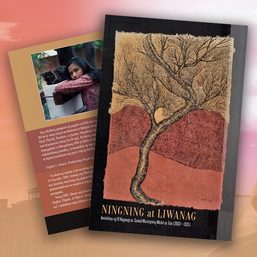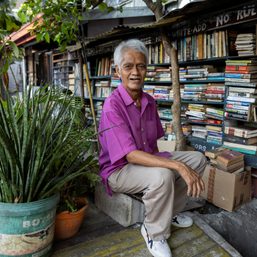SUMMARY
This is AI generated summarization, which may have errors. For context, always refer to the full article.

MANILA, Philippines – The National Irrigation Administration (NIA) is studying the possibility of abolishing irrigation service fees, its chief Florencio Padernal said during a House budget hearing on Tuesday, August 25.
Lawmakers and farmers’ groups have long called for government to stop charging farmers for the maintenance of government-built irrigation facilities. The collection of fees is part of NIA’s mandate under Republic Act No 3601 which created the agency.
Padernal said the NIA has begun consulting policy experts on how abolishing the fee would impact farmers and NIA operations.
The agency has talked with experts from the World Bank, Asian Development Bank, and will soon consult the Japanese International Cooperation Agency. The 3 groups are major funders of key government projects, including agricultural projects.
“It will take us another 3 months to conclude our studies of this matter. This is so crucial, so critical, we have to be very careful with our studies and recommendations,” said Padernal.
After the consultations, the NIA intends to discuss with the Department of Budget and Management the budgetary implications of the decision.
Burden on farmers
The ISF is being used to shoulder the operation and maintenance costs of the country’s irrigation facilities.
Thus, the fee pays for the operation of dams, running of pumps, operation of gates and drainage ditches, maintenance of service and access roads, and repairs of minor damages caused by natural calamities.
Taking out the fee would require the government to shoulder the operation and management costs.
But Bayan Muna Representative Neri Colmenares said it’s only right for the government to subsidize the irrigation services to ease the burden on Filipino farmers.
“Yung Vietnam, wala silang irrigation fee eh di syempre advantageous sa magsasaka nila, disadvantageous sa atin,” he said. (In Vietnam, there is no irrigation fee which is advantageous for their farmers and disadvantageous for ours.)
The ISF, he said, adds to expenses of farmers which increases the prices of Philippine agricultural products. This makes them less competitive compared to products of other Southeast Asian countries which heavily subsidize their agricultural sector.
Militant farmer organization Kilusang Magbubukid ng Pilipinas estimates that farmers are paying an average of P4,500 or 5 cavans of palay per hectare, per year.
They allege that farmer and irrigation associations have been asked to pay ISF even if their farmlands are not yet fully irrigated.
ASEAN integration ahead
Colmenares also criticized the NIA for only studying the impact of the ISF now when the Southeast Asian region is on the brink of economic integration.
Integration would lower trade barriers between Southeast Asian countries, opening up the Philippine market to cheaper products. Filipino farmers, already among the poorest in the country, would have to compete with these products.
“I have been calling for this for 3 years and it is only now that we are studying this. Our farmers are on the losing end,” he said.
The calls for getting rid of the ISF come at a time when the NIA budget has been its highest in years. For 2016, the agency is asking for P32.74 billion – 3.9% higher than its 2015 budget of P28.7 billion.
With the appointment of Presidential Assistant for Food Security and Agricultural Modernization Francis “Kiko” Pangilinan in 2014, the agency’s budget has increased by P30 billion. – Rappler.com
Add a comment
How does this make you feel?









There are no comments yet. Add your comment to start the conversation.